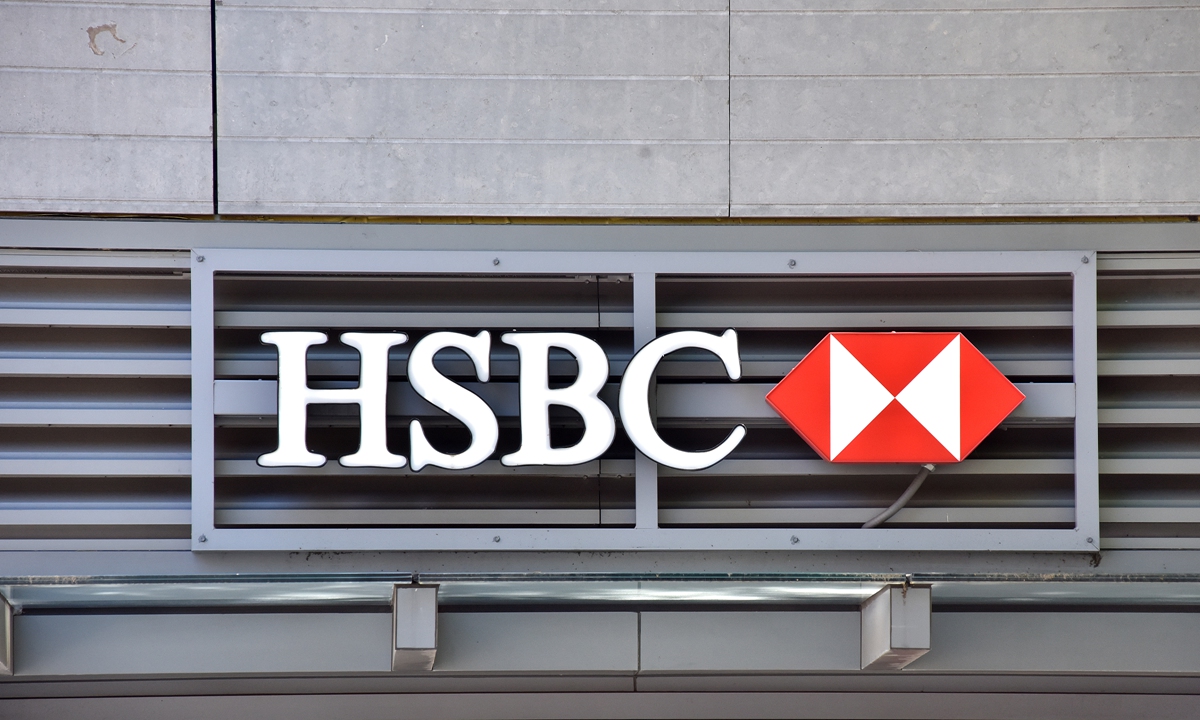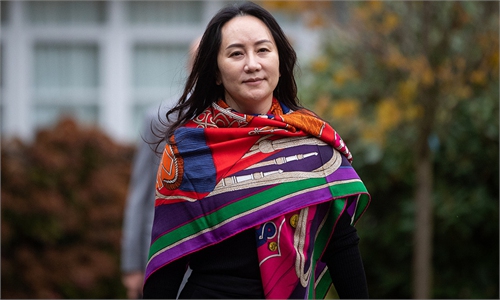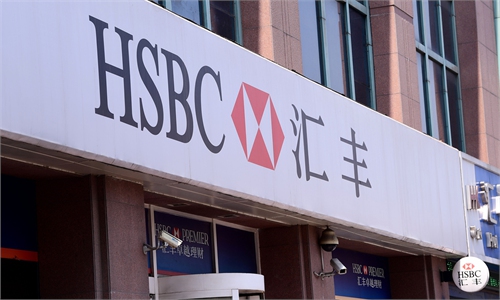
File photo: HSBC Photo: VCG
The recent defense by HSBC's chief executive of the move to freeze the bank accounts of former anti-government lawmaker Ted Hui in Hong Kong shows the bank's rational stance and respect for Chinese laws, analysts said.
Also, complaints from Hui against the bank are considered unreasonable and have no legal basis, local lawyers in Hong Kong said.
Noel Quinn, HSBC's chief executive, defended the British bank's stance on supporting the national security law for Hong Kong and freezing the accounts of Hui during a hearing of the UK parliamentary foreign affairs committee on Tuesday.
Quinn said he was "not in a position as a banker to be able to judge the motives or validity of [a] legal instruction from a law enforcement authority," nor was it his "position to make a moral or political judgment on these matters," the Financial Times reported.
Hong Kong Security Bureau denounced confusing rhetoric of foreign politicians on law enforcement of the Hong Kong Police Force related to freezing bank accounts of Hui, claiming that in accordance with Hong Kong laws, local banks resume their responsibility in handling alleged black money.
But if foreign politicians tried to pressure on them, they ignore the rule of law and did so out of political interest, the authority said.
"The rational replies by Quinn shows that HSBC has chosen a correct path in this crisis," Mei Xinyu, a research fellow at the Chinese Academy of International Trade and Economic Cooperation, told the Global Times on Wednesday.
Instead of engaging in political confrontations against a host country, what a company with transnational operations should do is to adhere to the local laws and regulations, Mei suggested. "It should neither drift into a country's internal affairs nor attempt to plan or support any form of subversion in the host country."
HSBC had been blamed for its slowness in showing support for the national security law, and an alleged role in funding Hong Kong rioters in 2019, as well as its controversial role in the detention of Huawei's Meng Wanzhou.
The bank reportedly shut down some accounts in November 2019, which were believed by some people to be channeling funds to Hong Kong rioters.
Chinese observers hoped the British bank could learn a lesson from the previous mistakes it had made.
"Freezing the bank accounts of some Hong Kong rioters has shown the attitude of HSBC toward these people," said Dong Dengxin, director of the Financial Securities Institute at Wuhan University of Science and Technology, adding that if the bank wants to make progress in the Chinese market, it should make up for mistakes with tangible actions and should respect Chinese laws and regulations.
In recent years, HSBC has made around two-thirds of its profits in Hong Kong, the Financial Times said.
Responding to the Global Times' inquiry, HSBC on Wednesday said it was unable to comment on matters concerning specific accounts, but said "We have to abide by the laws of the jurisdiction in which we operate."
Hui, who fled to the UK in December, posted on Facebook on January 17 that he did not accept the explanations of his frozen HSBC accounts provided by Quinn in an email, complaining that the bank has failed to provide the legal basis to freeze the accounts of his and his family members. But for legal experts, such claims appeared to be absurd.
"If a drug lord deposited money into an account, do you expect the bank to follow procedure and issue a questionnaire to the drug lord to explain it is not drug money?" Lawrence Ma, barrister and chairman at Hong Kong Legal Exchange Foundation, told the Global Times on Wednesday.
A bank customer, before choosing HSBC, should read the terms and conditions, he said, adding that banks operating in Hong Kong have a clause saying that the bank has the power to suspend or to terminate the operation of the account due to "any event which, in our opinion, renders suspension or termination of the account necessary or useful."
So the contract will definitely give the bank the widest possible power to do what it wants without being liable for breach of contract, Ma noted.
Wong Kwok-hing, former member of the Legislative Council of Hong Kong, called Hui a "clown" standing in front of curtain, media reports said.
The ugliest part in the case is the double standards of British authorities. Though boasting about being a civilized Western country observing the rule of law, Britain has ignored international laws, interfered in Hong Kong issues and ignored the fact that Hui is listed as wanted by a Hong Kong court, Wong said.
"I suggest some UK MPs should drink a cup of Oolong to wake up," Mei said, saying "they are incapable of imposing their views on China."
With the implementation of the national security law, there will be more similar cases in future, Cui Hongjian, director of the Department of European Studies at the China Institute of International Studies, told the Global Times. "For instance, foreign banks in Hong Kong may suffer from increasing pressure from the US if the country sanctions more officials in the special administrative region."
"Finance has become a tool in the game of international relations and a new norm. Companies should find their correct position," Cui said.




